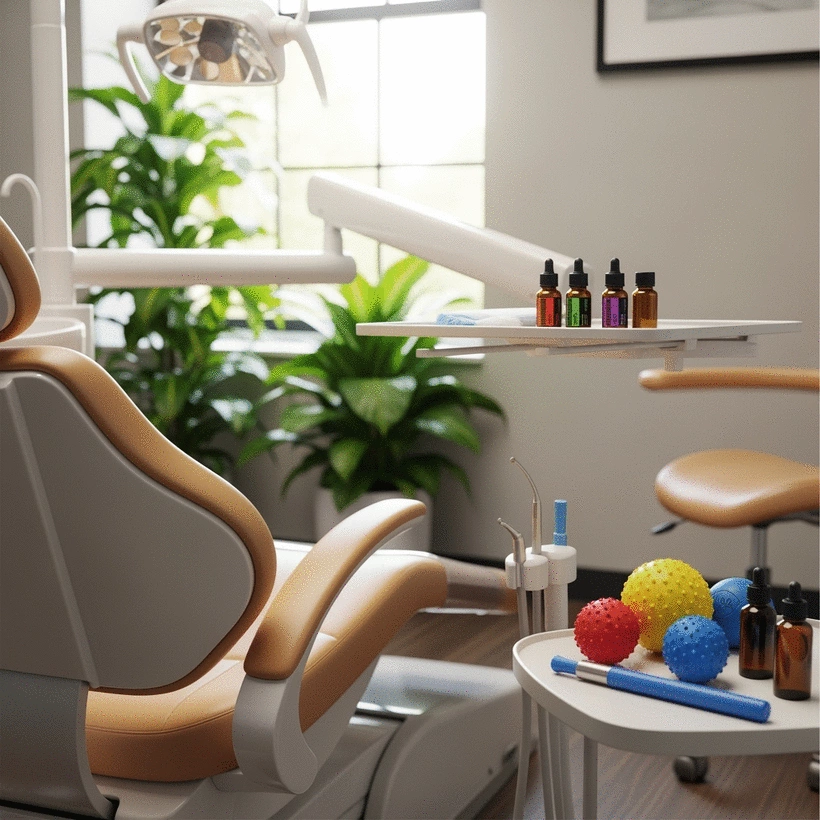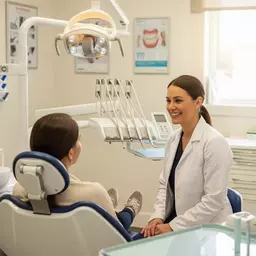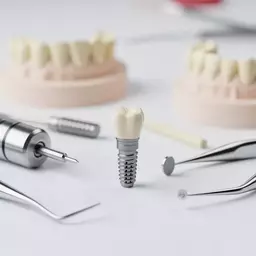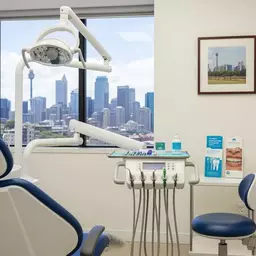Dental Anxiety: Tips for Comfort

What if a simple conversation could transform your next dental visit from a nerve-wracking experience into a calm, manageable one? Understanding dental anxiety and its triggers is crucial for addressing these common fears effectively.
What You Will Learn
- Dental anxiety is prevalent and can stem from various factors, including past experiences and sensory triggers.
- Recognizing symptoms of dental anxiety, such as increased heart rate and excessive sweating, can help facilitate better communication with your dental team.
- Understanding the difference between dental anxiety and dental phobia is essential for seeking appropriate support and treatment.
- Effective strategies for managing dental anxiety include open communication, establishing relaxation routines, and educating yourself about procedures.
- Building a supportive relationship with dental hygienists can enhance comfort during visits and help reduce anxiety over time.
- Utilizing resources such as support groups and mental health professionals can provide additional strategies for coping with dental anxiety.
Understanding and Managing Dental Anxiety
Dental anxiety is a common experience, but understanding its symptoms, triggers, and the distinction between anxiety and phobia can help patients and professionals manage it effectively. The visual below summarizes key aspects.
Symptoms of Dental Anxiety
- ●Increased heart rate
- ●Excessive sweating
- ●Feeling dizzy/lightheaded
- ●Difficulty concentrating
Common Triggers
- ●Painful past experiences
- ●Negative stories (friends/family)
- ●Unfamiliar environments/procedures
- ●Sensory overload (sounds/smells)
Anxiety vs. Phobia
Dental Anxiety: Common unease/nervousness before appointment.
Dental Phobia: Severe fear preventing necessary dental care.
Effective Tips
- ●Communicate concerns
- ●Relaxation routine
- ●Bring support (friend/family)
- ●Educate yourself on procedures
Understanding Dental Anxiety: Why It Happens
Dental anxiety is more common than you might think! Many people experience some level of nervousness when visiting the dentist, which can range from mild apprehension to overwhelming fear. Understanding why this anxiety occurs is the first step toward managing it effectively. As a dedicated dental professional, I've seen firsthand how knowledge can empower patients to face their fears head-on. For a deeper understanding of dental anxiety management, refer to clinical guides from authoritative sources.
Often, dental anxiety stems from past experiences, fear of pain, or even the sounds and smells associated with dental procedures. Recognizing these feelings is essential in addressing them properly. So, let’s explore the symptoms and triggers that can lead to dental anxiety.
Recognizing the Symptoms of Dental Anxiety
Identifying the signs of dental anxiety is crucial for both patients and their dentists. Here are some common symptoms to look out for:
- Increased heart rate or palpitations
- Excessive sweating or trembling
- Feeling dizzy or lightheaded
- Difficulty concentrating or feeling restless
If you notice these symptoms before a visit, you’re not alone! Understanding that these feelings are valid can help you communicate better with your dental team, allowing us to offer the support you need to feel comfortable. The American Academy of Pediatric Dentistry provides valuable behavioral guidance for managing anxiety in dental settings.
Common Triggers That Increase Dental Fear
Several factors can heighten dental anxiety. Recognizing these triggers can help you prepare and manage your feelings more effectively. Some common triggers include:
- Painful past experiences at the dentist
- Negative stories from friends or family
- Unfamiliar environments or procedures
- Sensory overload from sounds and smells
By pinpointing what specifically makes you anxious, we can work together to find solutions that make your dental visits more pleasant. Remember, at Best Dentist Sydney, we aim to create a welcoming environment that addresses these fears!
Distinguishing Between Dental Anxiety and Dental Phobia
It’s essential to understand the difference between dental anxiety and dental phobia. While both conditions involve fear, they are distinct:
- Dental Anxiety: This is a common feeling of unease or nervousness before a dental appointment.
- Dental Phobia: This is a more severe fear that can prevent individuals from seeking necessary dental care.
If you find that your anxiety is impacting your ability to maintain your oral health, it might be time to explore professional support options. Remember, you’re not alone in this—many patients successfully transform their dental experiences from fearful to fulfilling.
Interactive Poll: Share Your Thoughts!
We’d love to hear from you! What aspect of your dental visits causes you the most anxiety? Select one:
Frequently Asked Questions About Dental Anxiety
- Q: What is dental anxiety?
- A: Dental anxiety is a common feeling of unease, nervousness, or apprehension experienced before or during a dental appointment.
- Q: How can I tell if I have dental anxiety?
- A: Common symptoms include increased heart rate, excessive sweating, feeling dizzy or lightheaded, and difficulty concentrating before or during a dental visit.
- Q: What causes dental anxiety?
- A: Triggers can include painful past experiences, negative stories from others, unfamiliar dental environments or procedures, and sensory overload (sounds, smells) in the dental office.
- Q: Is dental anxiety the same as dental phobia?
- A: No. Dental anxiety is general nervousness, whereas dental phobia is a more severe, intense fear that can prevent an individual from seeking necessary dental care altogether.
- Q: What are some effective ways to manage dental anxiety?
- A: Effective strategies include openly communicating your concerns with your dental team, practicing relaxation techniques, bringing a supportive friend or family member, and educating yourself about upcoming procedures.
- Q: How can dental hygienists help with anxiety?
- A: Dental hygienists play a crucial role by explaining procedures, using gentle techniques, and offering tips for maintaining oral health, all of which contribute to a more comfortable and less anxious experience.
- Q: Where can I find more resources for managing dental anxiety?
- A: You can find support through online forums, support groups, mental health professionals specializing in anxiety disorders, and educational materials from reputable dental organizations like the American Dental Association, which offers evidence-based dental research.
Reflecting on Your Dental Journey: Key Takeaways
As we navigate our dental journeys, it’s essential to reflect on what we’ve learned and how we can apply these lessons moving forward. A comfortable dental experience is not just a matter of luck; it involves preparation and understanding. Here are some effective tips that can help you feel more at ease during your next visit:
- Communicate your concerns with your dentist.
- Establish a relaxation routine before your appointment.
- Consider bringing a friend or family member for support.
- Educate yourself about the procedures you will undergo.
These strategies can significantly enhance your comfort level in the dental chair. Remember, each visit is a step forward on your journey to excellent oral health!
Summarizing Effective Tips for a Comfortable Dental Experience
To summarize, here are some key takeaways that I’ve found valuable over my years in practice at Best Dentist Sydney: building a supportive environment, communicating openly with your dental team, and preparing mentally for treatments are all crucial steps. It’s also important to recognize that everyone’s anxiety levels are different, and what works for one person may not work for another.
- Talk to your dentist about any fears or anxiety.
- Practice relaxation techniques like deep breathing.
- Bring your favorite music or a stress-relief item to your appointment.
By implementing these tips, you can create a more positive dental experience that empowers you to take charge of your oral health.
Taking the Next Step: Your Path to a Stress-Free Dental Visit
Now that we’ve discussed how to reflect on our dental experiences, let’s focus on how you can prepare for your upcoming appointment. Taking proactive steps can make a big difference in managing anxiety and ensuring a successful visit. Here’s how:
- Make a list of questions to ask during your appointment.
- Schedule your appointment at a time when you feel most relaxed.
- Consider a pre-appointment consultation if you have significant anxiety.
These steps not only help you feel more prepared but also allow you to communicate effectively with your dental team.
Reaching Out for Support: Resources for Managing Dental Anxiety
Support is vital in managing dental anxiety, and there are various resources available to assist you. Whether through professional help, community groups, or simply talking to friends and family, don’t hesitate to reach out. Here are some resources worth considering:
- Online forums and support groups focused on dental anxiety.
- Local mental health professionals who specialize in anxiety disorders.
- Educational materials from reputable dental organizations.
Engaging with these resources can provide valuable insights and encouragement as you work towards a more stress-free dental experience.
Understanding the Role of Dental Hygienists in Patient Comfort
Finally, it's essential to recognize the invaluable role dental hygienists play in enhancing patient comfort. At Best Dentist Sydney, our hygienists are trained not just in their technical skills but also in providing a supportive environment. They are there to help you feel at ease and can offer strategies to alleviate your anxiety during cleanings and treatments.
- They can explain what to expect during each procedure.
- They often use gentle techniques to minimize discomfort.
- They are a great resource for tips on maintaining oral health at home.
By fostering a positive relationship with your dental hygienist, you can further reduce anxiety and build confidence in your oral care journey.
Recap of Key Points
Here is a quick recap of the important points discussed in the article:
- Dental anxiety is a common issue, often stemming from past experiences or fears related to dental procedures.
- Symptoms of dental anxiety include increased heart rate, sweating, dizziness, and difficulty concentrating.
- Common triggers for dental anxiety include painful past experiences, negative stories, unfamiliar environments, and sensory overload.
- Understanding the difference between dental anxiety and dental phobia can help in seeking appropriate support.
- Effective strategies to manage dental anxiety include communicating concerns, practicing relaxation techniques, and bringing support to appointments.
- Engaging with resources such as support groups and educational materials can provide valuable insights for managing anxiety.
- Building a positive relationship with dental hygienists can enhance comfort and reduce anxiety during visits.








